I created my own thread class implementing the Runnable interface. But every time I start running my own thread class as a new thread, the main class thread does not terminate anymore by itself. Is this just an issue within Eclipse or would I also have problem running this on a Server? Do I have to change something calling the thread so that the main method can terminate properly?
Here's my basic self-made thread:
public class OwnThread implements Runnable {
@Override
public void run() {
//do something
}
}
Here's the main class that won't terminate anymore:
public static void main(String[] args) {
Thread thread = new Thread(new OwnThread());
thread.start();
}
When I debug it, the last called method is the exit()-method of the Thread-class. After going through these lines of code, the process goes on forever:
/**
* This method is called by the system to give a Thread
* a chance to clean up before it actually exits.
*/
private void exit() {
if (group != null) {
group.threadTerminated(this);
group = null;
}
/* Aggressively null out all reference fields: see bug 4006245 */
target = null;
/* Speed the release of some of these resources */
threadLocals = null;
inheritableThreadLocals = null;
inheritedAccessControlContext = null;
blocker = null;
uncaughtExceptionHandler = null;
}
Here's a screenshot of the thread that is running forever. The TestInterface class is where the main-method is located:


